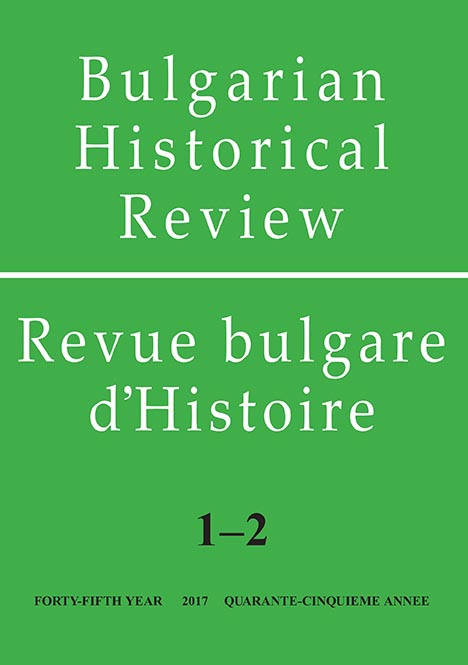Evliyā Celebi’s Seyāḥatnāme as a Source for South Slavic Linguistics
Evliyā Celebi’s Seyāḥatnāme as a Source for South Slavic Linguistics
Author(s): Slobodan IlićSubject(s): History, Language studies, Language and Literature Studies, Cultural history, Ethnohistory, Modern Age, Special Historiographies:, South Slavic Languages, 17th Century, The Ottoman Empire, Turkic languages
Published by: Институт за исторически изследвания - Българска академия на науките
Keywords: Evliya; Travel book; Ottoman; Balkans; Linguistics;
Summary/Abstract: In autumn and winter 1660, accompanying his patron Melek Aḥmed Pasha in an expedition against the Venetian fortifications in northern Dalmatia, the Ottoman traveller Evliyā Celebi (d. 1684) toured Serbia, Bosnia and Dalmatian rocky hinterland, leaving a meticulous description of towns, fortresses, public buildings, and peoples of the region, including samples from the local languages. Assumed as being of no interest for general Turkish reader, these linguistic specimens have been for the most part left out in abbreviated printed editions, and consequently, in contemporary translations in western languages, including Serbian and Croatian. Using an Ottoman manuscript generally accepted as the archetype, if not even the autograph of the related fifth part of the work (Topkapı Sarayı, Bağdat Koşku 307), the author introduces Evliyā’s Seyāḥatnāme (Book of Travel) as a work of linguistic, next to undisputed historical and literary significance.
Journal: Bulgarian Historical Review / Revue Bulgare d'Histoire
- Issue Year: 2017
- Issue No: 1-2
- Page Range: 43-53
- Page Count: 11
- Language: English
- Content File-PDF

